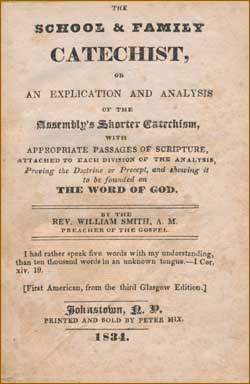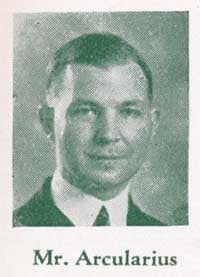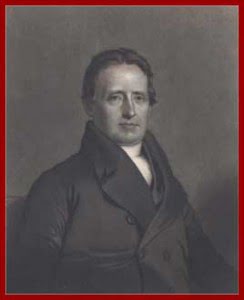 SCHOOL & FAMILY CATECHIST
SCHOOL & FAMILY CATECHIST
by Rev. William Smith (1834)
The Westminster Shorter Catechism, Questions 85 & 86.
Q. 83. Are all transgressions of the law equally heinous?
A. Some sins, in themselves, and by reason of several aggravations, are more heinous in the sight of God than others.
EXPLICATION.
Some sins in themselves. –That is, some sins from their very nature are more offensive to God than others, such as profane swearing, neglect of prayer, unbelief, &c. Such sins as these, are offensive to God in a very high degree, because they are committed directly against his infinite Majesty, and show a contempt of his name and authority.
More heinous. –More wicked, more hateful, or more displeasing to God.
By reason of several aggravations. –From their being committed in circumstances which make such sins more grievous and faulty, than they would otherwise be. Thus, sins committed by eminent persons, against much light and knowledge, or on the sabbath-day, are more hateful in the sight of God, than the same sins would be, when committed by ignorant persons, and on the ordinary days of the week.
ANALYSIS.
In this answer are taught three things:
- That some sins are more heinous, in God’s sight, than others. –Ezek. viii. 3. Turn thee yet again, and thou shalt see greater abominations that they do.
- That some sins, in themselves, are more heinous than others. –1 John v. 16. There is a sin unto death; I do not say that he shall pray for it.
- That some sins are rendered more heinous than others, by reason of several aggravations. –John xix. 11. He that delivered me unto thee, hath the greater sin. James iv. 17. To him that knoweth to do good, and doth it not, to him it is sin.
Q. 84. What doth every sin deserve?
A. Every sin deserves God’s wrath and curse, both in this life and that which is to come.
EXPLICATION.
God’s wrath and curse. –That act of the Divine will, by which every sinner, who continues in his sins, is made subject to pain, to shame, and death here, and devoted to everlasting misery hereafter.
ANALYSIS.
In this answer, we have two points of information:
- That every sin deserves God’s wrath and curse. –Gal. iii. 10. Cursed is every one that continueth not in all things which are written in the book of the law, to do them.
- That every sin deserves God’s wrath and curse, not only in this life, but also in that which is to come. –Matt. xxv. 41. Then shall he say unto them on the left hand, Depart from me, ye cursed, into everlasting fire, prepared for the devil and his angels.




